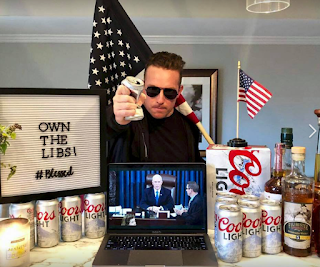John Ioannidis needs to wear a scarlet K, for kook
I used to tell my students that the fate of bad science is not to be refuted, but to be ignored. We ignore it, because to refute it takes time that could be used for more worthwhile endeavors, and refuting it also makes enemies. In fact, on one of the rare occasions I felt it necessary to publish a refutation of some particularly bad science, one of a referee's major criticisms was that I was paying any attention to the work at all. That is one of the nice things about the scientific consensus.
I submit this formula no longer works, in an era when the bad actor can go on Fox News and spew their garbage to the world, or take a job with a Republican administration and put the lives of thousands in jeopardy.
This is why I'm calling out John Ioannidis.
Ioannidis is often called an iconoclast, but I maintain iconoclast is one of those nouns that declines. My iconoclast is your bombthrower is his kook. When Ioannidis published Why Most Published Research Findings Are False, a lot of people thought it was very positive iconoclasm. It probably led to a welcome appraisal of how we generate and publish scientific work. On the other hand I thought it was b.s., the result of arguments based almost entirely on conjecture. If I thought more than 10% of my published work were false, I'd retire to a monastery in silence to atone for my sins. If I thought 10% of the papers in my field were wrong, I really would start doing refutations.
There is nothing positive about Ioannidis' contributions to COVID science. They are bad, wrong, kooky, and have likely killed people because of their influence on conservative policy makers.
Ioannidis initially published an opinion piece that claimed
- Projecting the Diamond Princess mortality rate onto the age structure of the U.S. population, the death rate among people infected with Covid-19 would be 0.125%
- that with a case fatality rate of 0.3%, and 1% infection, there would be a death toll of 10,000 in the US.
- In the most pessimistic scenario, which I do not espouse, if the new coronavirus infects 60% of the global population and 1% of the infected people die, that will translate into more than 40 million deaths globally, matching the 1918 influenza pandemic.


Comments
Post a Comment